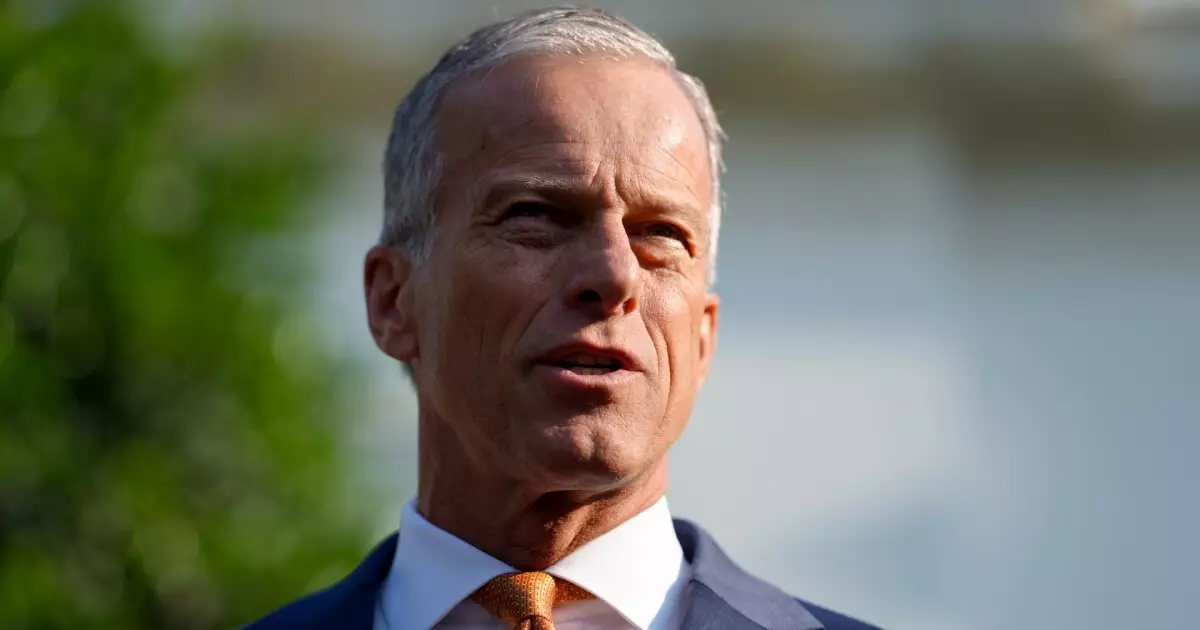The ongoing debate over the State and Local Tax (SALT) cap, particularly the House version of the One Big Beautiful Bill Act (OBBBA), highlights profound misunderstandings and misguided priorities in Congress. While raising the SALT deduction cap may appeal to particular high-tax states, the underlying financial dynamics expose troubling realities that policymakers seem unwilling to confront. It’s time to critically evaluate the implications of this maneuver and recognize it for what it truly is: a reckless distraction from prudent fiscal policy.
The Illusion of a Tax Break
At first glance, raising the SALT deduction cap from $10,000 to $40,000 sounds like a notable tax relief for those earning under $500,000 annually. However, this purported benefit should be scrutinized further. By increasing the cap, we are not genuinely reforming the tax code; we are merely shifting the burden. The singular focus on a select few with high state and local taxes drowns out the broader implications for fiscal responsibility.
Across the spectrum, those afflicted by neglect from the Senate’s indifference—especially as articulated by Senate Majority Leader John Thune—show a glaring truth: this is not a Republican priority. When the GOP lacks representation from states driving the demand for changes to SALT, it’s time to question not just the feasibility but the wisdom of pursuing this outdated agenda.
Unpacking the Economic Consequences
The financial ramifications of raising the SALT cap are staggering. Reports indicate that the tax cuts associated with this bill could exceed $4 trillion, while simultaneously increasing the budget deficit by approximately $2.6 trillion over the next decade. This alarming juxtaposition raises red flags about our already precarious fiscal health.
Garrett Watson of the Tax Foundation has rightfully pointed out that the addition of a more costly SALT deduction would deprive the package of sound tax policy fundamentals. Such financial irresponsibility sends a detrimental message to average taxpayers who expect their representatives to pursue genuine economic improvement rather than catering to urban elites.
As Congress continues to flirt with this contentious cap, we must remember that fiscal practices ought to adhere to principles of justice and equity—they should not merely accommodate wealthier constituents to buy political favors.
The Misguided Focus on Ineffective Solutions
The SALT cap isn’t merely a tax tweak; it’s symptomatic of a broader dysfunction in our approach to taxation and budgeting. The reliance on workarounds, such as the pass-through exemptions, illustrates how convoluted our economic landscape has become. Rather than simplifying and clarifying the tax code for all Americans, Congress is mired in complex legal loopholes that serve only to complicate fiscal realities.
Tax experts predict that depending on the future of these exemptions will only add to the confusion if the house’s new SALT regulations make it through the Senate. We ought to question whether perpetuating inequities for some and devaluing sound financial principles is indeed a wise course.
The Burden of “Beautiful Bills”
Politicians often tout bills like the OBBBA as transformative, embodying a vision for a prosperous future. But the hidden costs of these “beautiful bills” can leave taxpayers grappling with a myriad of fiscal burdens they didn’t bargain for. Rather than enacting sweeping reforms aimed at simplifying taxation and producing a transparent budget, Congress finds itself tangled in the machinations of appeasing a handful of states at the likely expense of overall economic health.
If the intent is genuine tax reform, it should prioritize efficiency, promote investment, and discourage the pervasive entitlement mentality that hinders economic progress. Instead, we waft through an endless cycle of partisan pushes that often obliviate long-term sensibility.
The Case for Real Reform
Ultimately, the focus should not be on whether we can afford to raise the SALT cap; instead, we must question why we would even consider it at all. With a budget deficit looming, it is unwise to indulge the preferences of a few powerful interests while disenfranchising the average taxpayer.
Instead, we should advocate for tax policies that are both equitable and sustainable, promoting a system that benefits the larger populace while addressing the root causes of inefficient governance and spending. With fiscal prudence at the forefront, innovation in tax policy can spring forth solutions that resonate across the socioeconomic spectrum, rather than simply providing political cover for a select few.
The SALT cap debate is truly a distraction that risks deepening our fiscal woes rather than alleviating them—a lesson Congress ought to learn before it’s too late.

